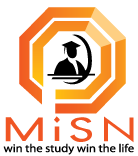5 EASY STEPS TO REACH YOUR DESTINATION
DECIDE ON A SUITABLE COURSE AND STUDY OPTION
► Question to ask before choosing a course:
As personal preferences and university courses vary significantly, it is not possible to provide a comprehensive guide to help you select a suitable course. However, in making your decision, you must be able to respond with confidence to the following questions:
- Do I have enough information about this course?
- When will the course start? (March or July)?
- Am I aware of the course structure, particularly the compulsory and elective modules?
- Which universities offer this course?
- Does the course require a high level of English proficiency?
- Do I intend to pursue my career in the area covered by this course?
- What are the career prospects after I graduate from this course?
- Do I have friends who are interested in or who are already studying in this course?
- What is the cost involved in undertaking this course?
- Do I want to study at university in the first place? Are there alternative always to acquire the knowledge I require?
- Do I have the appropriate academic background and results to undertake the course I’m interested in at university?
► Course Recognition in Your Home Country:
Although this may not be easy to establish, it is critical to investigate this further as it will affect your job prospects in your home country after graduation. And what happens if you need to return home before you finish your degree? Will you be able to transfer with credit to a related degree in your home country?
Please contact a MiSN counselor for more details and information regarding making an informed decision on which university to attend to.
LIST OF THE COURSES YOU MIGHT BE INTERESTED IN
Agriculture, Animal & Environmental Studies
Agriculture, Animal & Environmental Studies:
This field covers a broad range of areas relating to the production of agricultural goods and sciences used in production. It involves a particular occupational area in agricultural goods and services used in production. This includes breeding animals to raising crops. To obtain an environmental science degree, one may consider studying subject areas such as ecology, atmospheric sciences, geosciences, environmental chemistry or environmental microbiology. The choices of areas that you can pursue include:
√ Geography
√ Horticulture
√ Equine Studies
√ Veterinary Science
Architecture & Built Environment
Architecture & Built Environment:
The study areas in architecture include design, art and architecture history and theory, building technology and construction, computer modeling, graphics and drawing, professional architectural practice and architectural research. This program is usually hands-on from the very start, allowing students to turn ideas into solid objects. Architectural design ranges in size and complexity from small alterations for a single house to large, commercial buildings or even parts of cities.
The term Build Environment is widely used to describe the interdisciplinary field of study which involves design, construction and management of resources. The areas that you can explore are:
√ Architectural Design – Surveying
√ Town Planning – Interior Design
√ Landscape Design- Construction Management
Arts & Social Science
Arts & Social Science:
Arts and Social Sciences is the study of human society. Social science is commonly used as an broad term to refer to a plurality of fields outside of the natural sciences. These include: anthropology, archaeology, economics, geography, history, law, linguistics, political science, sociology, international relations, communication, and, in some contexts, psychology.
There are an interesting range of study areas to select from. For example, if your interest is in languages, your options would include French, German, Italian, Spanish, Japanese, Arabic and Chinese. You could also study English language or literature, history, drama, American history or art history or a combination. You could take a degree or double degrees in interdisciplinary human studies, combining philosophy with psychology, sociology and literature, or you could study creative writing or drama or even a combination with law, engineering, business etc. The courses that students can pursue include:
√ Psychology
√ Music
√ Linguistics
√ Political Science
√ Social Work
√ History – Drama
Business & Commerce
Business & Commerce:
In today’s competitive environment, professionals need the skills to adapt to the ever changing business world. Depending on the area of major study students are interested in, graduates can work in many occupations, including financial analyst, human resources officer and public relations manager, as well as in marketing, accountancy, international trade, administration and advertising. Being graduates of business or commerce degree, students will have an ability to think outside any one technical framework.
√ Accounting
√ Actuarial Studies
√ Management
√ Hospitality Management & Tourism
√ Marketing
√ Economics
√ Finance
√ Logistics Management
√ International Business
√ Human Resource Management
Comunication & Creative Arts
Comunication & Creative Arts:
Communication is a highly diverse and broad discipline. Hence, communication graduates find careers in such fields as advertising, broadcasting, corporate communication, education, journalism, retail, public relations, research, personnel development, publishing, and visual communication.
Creative arts courses allow you to do the things you really love, and explore your creative talents. You can choose from a wide range of arts courses, including art, theatre and stage management, music, photography, fashion design, graphic design, printing, animation and writing. Creative arts provide you with the knowledge of digital media skills and communication as well. Students will be able explore the insight of the creative economy and appreciate the combination interdisciplinary and creativity.
√ Media Studies – Graphic Design
√ Visual Arts – Fashion Design
√ Multimedia – Film Studies
Computing & IT
Computing & IT:
Computing and Information Technology have long been a very popular course for students. Computing is usually defined as the activity of using and improving computer technology, computer hardware and software. It is the computer-specific part of information technology. Computer science (or computing science) is the study and the science of the theoretical foundations of information and computation and their implementation and application in computer systems.
The important of computing is prevalent in our daily lives. The increasing importance of the internet, multimedia and social networking mediums have been phenomenal. All other industries such as education, entertainment, recreation or communication depend heavily on computing and IT and you have to identify which aspect interests you the most. Students could either specialise in the practical elements such as hardware or networking. Alternatively, you may be interest in developing systems and programs or work towards a management role.
√ Computer Science
√ Information Technology
√ Information Systems
√ Software & Hardware Engineering
√ Internetworking
√ Web programming
Education
Education:
There are many reasons why someone would like to study Education. The Education course is for people who want to make a difference in the life of others. Others have a general interest in education and want to broaden their knowledge about educational theories, learning theories and perhaps engage in research work. Students will explore contemporary and innovative approaches to education; with these valuable experiences and have the opportunity to implement and practice learning techniques. If you are determine to educate others with your own creativity with the existing facts and knowledge then this will be a career that you will enjoy and progress with success and potentials. The areas that are related to education:
√ Teaching (Primary & Secondary)
√ Early Childhood
√ Counseling
Engineering
Engineering:
Engineers belong to the greatest profession in the world, responsible for almost relevant in modern day living from leisure activities to medical treatment, mobile phones, vehicles and all the equipments we use everyday. Engineering is the discipline, art and profession of acquiring and applying scientific, mathematical, economic, social, and practical knowledge to design and build structures, machines, devices, systems, materials and processes. Engineering can be broken into a number of specialty areas including chemical, civil, industrial and mechanical engineering divisions. The main areas of engineering include:
√ Aerospace engineering
√ Chemical engineering
√ Civil engineering
√ Electrical engineering
√ Mechanical engineering
√ Marine Engineering
√ Electronics & Mechatronics Engineering
√ Mining & Petroleum Engineering
Health Science & Nursing
Health Science & Nursing:
Health science or biomedical science is the applied science dealing with health. This field is very diverse. There are two approaches to health science: the study and research of the food that we eat; and the study and research of health-related issues to understand how humans and other animals function, and the application of that knowledge to improve health and to prevent and cure diseases.
Students can take a degree in nursing, midwifery, chiropody, physiotherapy, radiography, occupational therapy or in any other health-related profession. Courses cover both theoretical and practical training and usually last three to four years. In nursing, for example, the degree route to qualification is increasingly popular, particularly with international student-nurses. Degree programs are available in adult nursing, children’s nursing, mental health nursing, learning disabilities nursing and midwifery.
√ Food Science
√ Biotechnology
√ Nursing & Midwifery
√ Human Movement
√ Pathology
√ Biomedical
√ Physiology
√ Medical Radiation
v Podiatry
√ Chiropractic
√ Women’s health
√ Men’s health
Law & Legal Studies
Law & Legal Studies:
Law is a system of rules, usually enforced through a set of institutions. It shapes politics, economics and society in numerous ways and serves as a primary social mediator of relations between people. The study of law has often attracted those who wish to develop, shape and use the law to resolve problems and injustices. If you have made your decision to study law, you need to take into account the requirements of your country where you plan to practice law – as it varies from country to country. Before making the decision to study law, it is advisable for students to check with the relevant body in the country in which you wan to work in to ensure the qualification you are obtaining is recognized and meets all the appropriate requirements.
√ Criminal
√ Family
√ Contract
v Equity
√ Property
√ Administrative
√ Intellectual Property
Medicine & Dentistry
Medicine & Dentistry:
The field of medicine is very challenging. Doctors have to take sole responsibility for their decisions and the consequence they have on patients’ lives. They must be prepared to work hard and face long and irregular working hours. The program’s key features include: the simultaneous learning of basic, clinical, biological and social sciences; the improved teaching of communication skills; the use of learning approaches that encourage lifelong learning skills; the incorporation of ethics and professional development as an integral part of the program; and the incorporation of information technology and computing skills to ensure that graduates are able to utilise technological advances to improve their learning skills and knowledge acquisition.
Dentistry is a small well-known and high-status profession. Perhaps that is why so many high academic achievers want to become dentists. There is only a small student contingent in Australia and UK. All courses are hard to get in and the duration is five years. It is part of science of medicine dealing with the study and maintenance of good health of the teeth, the bone supporting the teeth and the soft tissues in and around the mouth. Modern dentistry requires specialist knowledge not only of the mouth but also a wide understanding of the whole body. A dentist preserves teeth by filling, crowning, and scaling. He extracts teeth and designs and fits artificial dentures. He also does surgical operation on the jaws, orthodontics, which is the improvement of irregular teeth, mainly in children. But this is changing field of practice. Tooth decay has just about disappeared, thanks to fluoride, and dental therapists and other paraprofessionals who do most of the straight repair and health education tasks once done by dentists. Dentists now tend to spend most of their time on cosmetic and other specialist work.
Pharmacy & Medical Science
Pharmacy & Medical Science:
Pharmacy is the study on the impact and action of drugs on biological systems and their applications for human drug therapy. Pharmacy is a field providing lots of prospects along with excellent pay and growth opportunities. Study areas within the course include basic sciences including chemistry, physiology, biochemistry, anatomy, and statistics; applied pharmacy courses in the pharmaceutical sciences including dosage form design, drug discovery, biological fate of drugs and pharmacology; and courses in the practice and clinical areas of pharmacy including quality use of medications, data analysis and social and professional aspects of pharmacy. For their knowledge and experience, pharmacists are welcomed at a number of arenas. Your fields to work in as a pharmacist include:
√ Research
√ Retail
√ Clinical
√ Academia
√ Nuclear
√ Consulting
√ Hospital
√ Pharmaceutical industry
√ Government/military
















